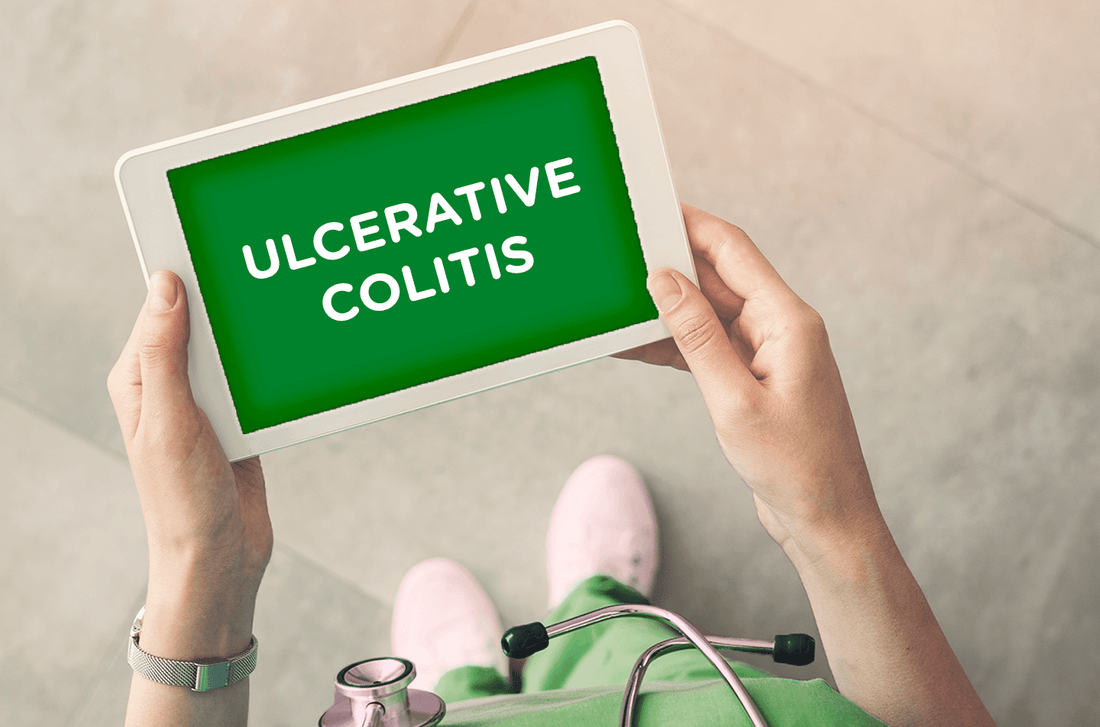Inflammation, Bacteria and the Gut: Understanding Ulcerative Colitis
Ulcerative colitis is an inflammatory bowel disease (alongside Crohn’s disease), affecting approximately 100,000 Canadians. Epidemiological research conducted in 2012 suggests that rates of inflammatory bowel disease (IBD) may be on the rise. Of the 10,000 new cases of IBD diagnosed each year, about 4,500 reported as ulcerative colitis.1
While ulcerative colitis and Crohn's disease share many features, there are a few distinct differences: ulcerative colitis occurs in the colon, whereas Crohn’s can happen anywhere along the digestive tract. Ulcerative colitis presents as continuous inflammation of the tissues along the innermost layer of the intestine. In Crohn’s disease, the inflammation extends deep into the gut tissues but tends to occur in patches along the gut.
Ulcerative colitis is generally considered less severe in prognosis than Crohn’s disease; however, symptoms can have a significant impact on daily wellbeing. Fatigue, food triggers, abdominal pain, discomfort and frequent bouts of diarrhea are common and make it difficult to engage in everyday activities such as sports, physical or outdoor work or dining out. A hallmark of the disease is the frequent urge to go to the bathroom, although there is very little to eliminate: inflammation of the rectum causes this false sense of urgency.
The Origins of Ulcerative Colitis
Like Crohn’s Disease, ulcerative colitis is believed to arise out of a complex interplay between genetics, environment, bacteria and diet.2,3 In states of disease, the immune system appears to have difficulty tolerating the normal presence of the gut flora, leading to an ongoing inflammatory response.2 However, the barrier function of the gut is also compromised, which further exacerbates inflammatory activity.2 How does this happen? Remember that your digestive tract is a critical barrier between you and the outside world, just like your skin is. However, unlike your skin, your gut barrier is made up of only a single layer of cells. Because the integrity of these cells is so essential to your health, your body gets a little extra help by producing a layer of mucus as added protection. Cells in the gut lining, called goblet cells, create mucus, which plays a vital role in preventing bacterial contact with the gut cell itself.3 This mucus is looser near the gut space (aka the lumen) and gets denser, the closer it gets to the gut cell. In a healthy individual, this mucus layer is thick, quickly regenerates, and helps to ensure that immune interactions with gut bacteria are peaceful. In fact, some types of bacteria even help stimulate the growth of the mucus layer.
It has been shown with ulcerative colitis that there are fewer mucus-producing goblet cells and the thickness of the mucus barrier is diminished.3 When this occurs, bacteria can interact with, and potentially damage, the gut cell barrier, inciting an inflammatory response to try and remove the bacteria.3 As this interaction progresses, more immune cells infiltrate at the gut surface, and like adding logs to a fire, the inflammation rages with more intensity. There is also evidence of decreased bacterial diversity in ulcerative colitis; the pattern of bacterial species in ulcerative colitis has been shown to be distinct from both healthy people and those with Crohn’s disease.2,4 Because of these microbial changes, people with ulcerative colitis may be more at risk for enteric infection with microbes like E.coli or C.diff that could lead to severe flare-ups of the disease.2
We also have clues as to the role of nutrition in the development and progression of the disease. Those who live further from the equator, typically resulting in lower blood levels of vitamin D, tend to have higher rates of the disease. Countries with higher fat, lower fibre, more Westernized eating patterns also tend to have higher rates of the disease.
Living with Ulcerative Colitis
Those with ulcerative colitis may experience fewer flares of the disease than is common in Crohn’s disease, and may have less pain in the non-flare state; however, ulcerative colitis can have a significant impact on daily wellbeing. For those who experience symptoms, medications are similar to Crohn’s disease and may include 5-aminosalicylates or corticosteroids to calm the immune system.5 In rare cases, surgery may be required to remove diseased portions of the bowel.
In my practice, it is all too common for my clients with ulcerative colitis to be taking multiple medications but still struggling with urgency, diarrhea and gas and bloating. For this reason, people may avoid more irritating foods such as vegetables, legumes and whole grains and eat more pro-inflammatory food such as meat, starch and sugar. While this type of diet may feel like it is easier to tolerate, it can lead to worse disease outcomes later on.6 Depending on the severity of symptoms, I will often start by recommending easily digestible foods, such as lower FODMAP choices like gluten-free grains and low lactose dairy alternatives alongside nutrients that help fight inflammation such as omega-3 fats and vitamin D. I also introduce a probiotic like Bio-K+. Given the decreased bacterial diversity common in the disease, struggles with gas and diarrhea and the ability of bacteria to favourably support the immune system, probiotics make good therapeutic sense.
The research also suggests the benefit of probiotics. One recent meta-analysis suggests that probiotics may help both induce and maintain remission of the disease.6 The authors believe that probiotics may help by acting in multiple ways: by downregulating inflammation, improving barrier function and fighting harmful bacterial strains.6 Working with probiotics has helped those with ulcerative colitis decrease the frequency of their bathroom trips and allowed their gut to calm down so that they can begin introducing a more healthful, anti-inflammatory diet for long-term health.
As tolerated, encourage a slow increase in the consumption of fibre, particularly soluble fibre found in psyllium, oranges, and oats to help lower inflammation as it promotes the growth of beneficial microbes. Reducing intake of red meat and increasing intake of fibre-rich plant proteins and omega 3-rich fish and seeds has also been proven beneficial.
As the incidence of ulcerative colitis rises, it’s important to know that you have a great deal of power to improve your health and quality of life with the disease. Foster a healthier microbial community and lower inflammation with careful attention to nutrition and a clinical strength probiotic like Bio-K+.
Do you have any other questions concerning the health of your gut? Let us know in the comments below! Join our community for more healthy tips. Click here to find a store near you. Contact us or follow us on Facebook and Instagram.
References
- https://www.ncbi.nlm.nih.gov/pmc/articles/PMC3495699/
- https://www.ncbi.nlm.nih.gov/pubmed/27580687
- https://www.ncbi.nlm.nih.gov/pmc/articles/PMC4110578/
- https://www.ncbi.nlm.nih.gov/pmc/articles/PMC3779803/
- https://www.gastrojournal.org/article/S0016-5085(15)00303-0/fulltext
- http://www.mdpi.com/2072-6643/9/3/259
- https://pdfs.semanticscholar.org/9161/0b1c6b79a24f45da043ad208b752835c3c8b.pdf?_ga=2.147401791.968415737.1531154841-2034272401.1518669641





